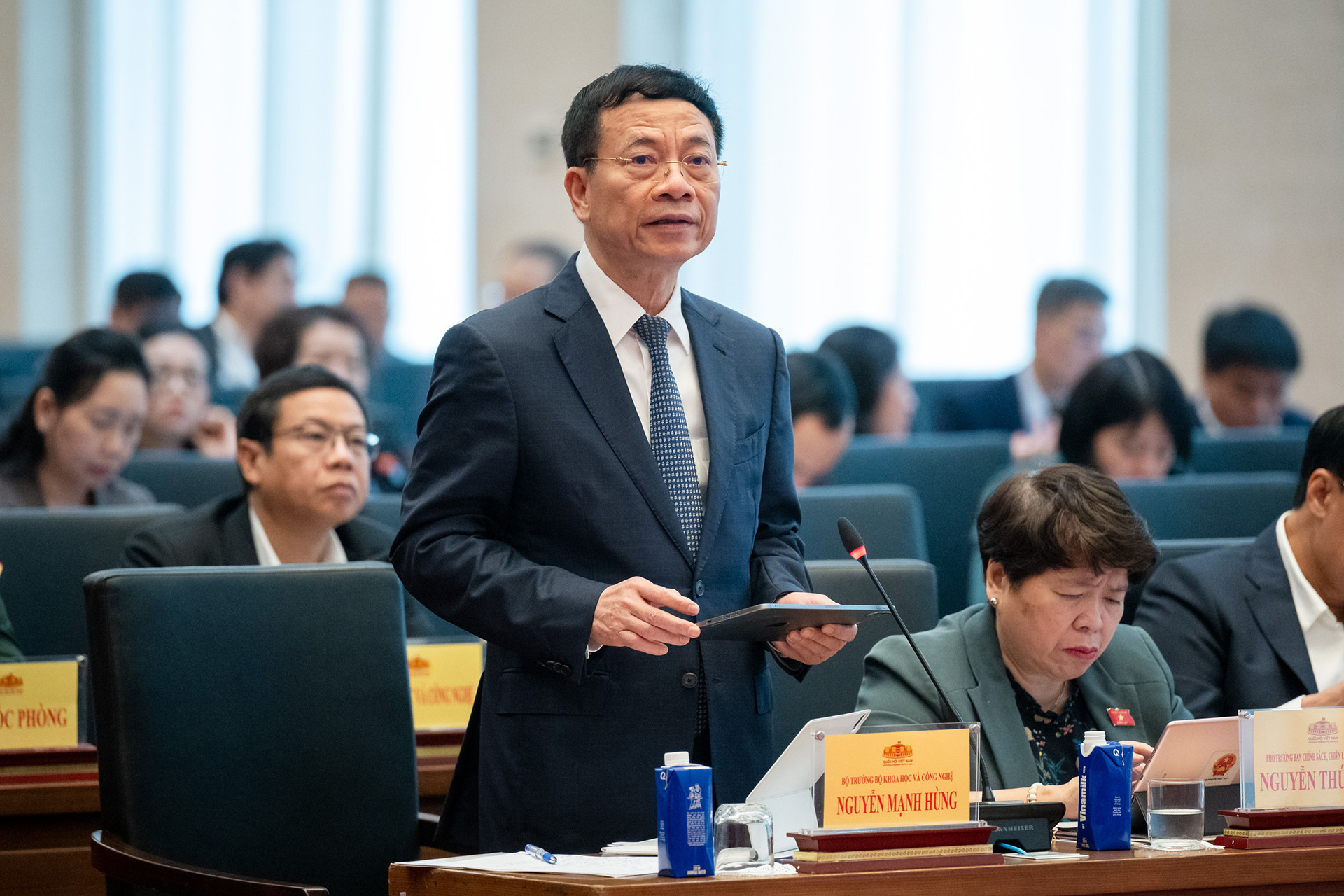
This morning, National Assembly delegates held a discussion on the draft Law on Digital Technology Industry and the Law on Standards and Technical Regulations.
Speaking at the conference, delegate Pham Trong Nghia noted that the draft law includes several incentives aimed at training and attracting human resources for the digital technology industry through policies such as scholarships, recruiting foreign experts, and recognizing talent.
However, Nghia emphasized that attracting skilled professionals, especially in digital technology, requires overcoming intense international competition.
“To attract global talent and prevent brain drain within the country, incentive policies must be exceptional,” Nghia stated.
Sharing the same concern, delegate Tran Van Khai remarked that the draft law includes policies to attract and retain digital technology talent. He proposed introducing groundbreaking measures, such as income tax exemptions or reductions for technology experts.
Regarding artificial intelligence (AI), delegate Pham Trong Nghia supported the draft law’s human-centered approach, which prioritizes ethics, transparency, and accountability. However, he recommended adding principles to respect and protect human rights while ensuring legal accountability for producers, owners, and managers of AI systems.
Minister Nguyen Manh Hung addressed the delegates’ comments, emphasizing that the digital technology industry is a dynamic and essential economic sector for the country. The Party and the State have identified it as a strategic foundation, well-suited to Vietnam’s strengths, and crucial for developing both the digital economy and digital society in the new era.
“It is crucial to clarify the concept of digital technology, especially how it differs from information technology (IT). The primary distinction lies in the processing object: IT handles structured information, while digital technology processes data, both structured and unstructured. Therefore, digital technology can be seen as encompassing and even replacing IT,” the Minister explained.
Regarding the revised Law on Standards and Technical Regulations, the Minister outlined a new approach that prioritizes comprehensive standardization, market-driven leadership, state guidance, enterprise-centered implementation, and active social participation with international integration. The shift is from state-led to a balanced model between the state and the market, extending standards to cover the entire economy.
The Minister further emphasized that transforming standards from quantity to quality would enhance national competitiveness, promoting high-quality growth based on science, technology, innovation, and digital transformation.
Significant amendments to the law aim to ensure compliance with international commitments, particularly new-generation free trade agreements (FTAs), and strengthen social engagement in standard-setting, certification, and assessment. The revised law also focuses on digital transformation within standard and regulation activities, such as building a national database on standards and requiring businesses to disclose standards through electronic platforms to ensure transparency and public participation.
Quang Phong